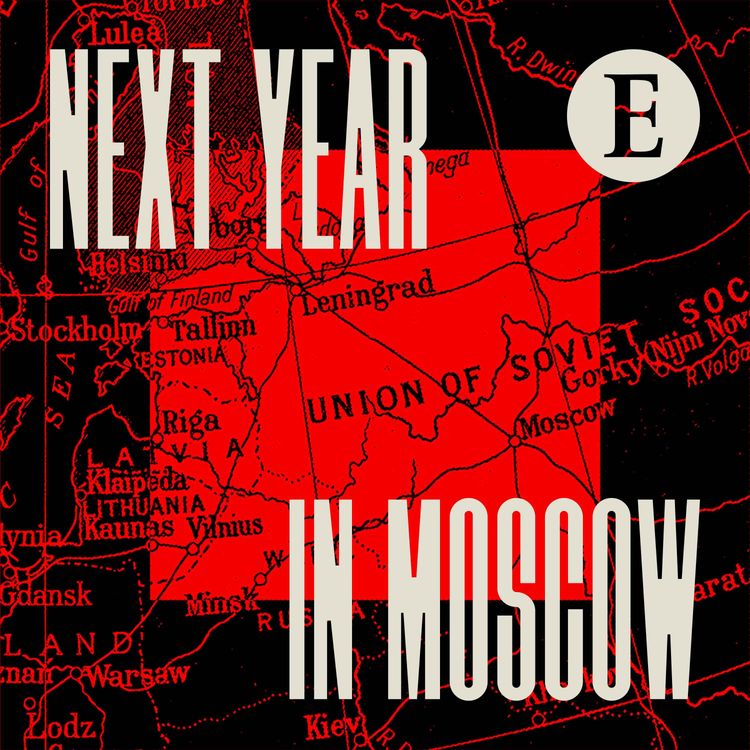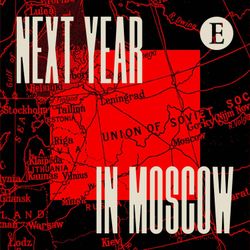Share

Next Year in Moscow
Next Year in Moscow: Update
•
Alexei Navalny’s death has had a shattering effect on the people featured in this podcast - and on the idea of a free and peaceful Russia.
We had planned to publish a new episode today, on the second anniversary of Russia’s invasion of Ukraine. But we will continue our reporting for an extra week. Episode 9 will be published here on Saturday 2nd March.
More episodes
View all episodes

Next Year in Moscow: Trailer
03:48|When the shelling of Ukraine began a year ago, free-thinking Russians faced a fateful choice: lie low, resist or flee. Hundreds of thousands decided to leave. For them the war meant the future of Russia itself was now in doubt.The Economist's Arkady Ostrovsky finds out what happened to these exiles for a new podcast series. Their stories help solve the mystery of why this senseless war began – and how it might end. New episodes will be released weekly on Saturdays.For full access to print, digital and audio editions, as well as exclusive live events, subscribe to The Economist at economist.com/moscowoffer
1. Next Year in Moscow 1: This damn year
34:45||Ep. 1For Russians opposed to Vladimir Putin, everything changed the moment they awoke to news of the invasion of Ukraine a year ago. They felt a range of emotions: pain, fury and shame. And they had to figure out what to do next. The Economist’s Arkady Ostrovsky has been speaking to them, because their stories help solve the mystery of why this senseless war began – and how it might end.New episodes will be released weekly on Saturdays.For full access to print, digital and audio editions, as well as exclusive live events, subscribe to The Economist at economist.com/moscowoffer
2. Next Year in Moscow 2: A beautiful life
34:39||Ep. 2A decade ago Russia's middle class was larger and richer than it had ever been. “Russians are OK” was the title of a popular YouTube channel. But Vladimir Putin’s return to power sparked unprecedented protests as two very different visions of Russia vied for dominance. New episodes will be released weekly on Saturdays.For full access to print, digital and audio editions, as well as exclusive live events, subscribe to The Economist at economist.com/moscowoffer
3. Next Year in Moscow 3: Baggage
37:12||Ep. 3In one sense, the war did not really begin in 2022. It did not even begin in Ukraine. It started the first time Vladimir Putin invaded one of Russia’s neighbours and got away with it. That was 15 years ago, in Georgia. And in the same place Joseph Stalin, author of the Soviet empire’s darkest chapter, was born. New episodes released on Saturdays.For full access to print, digital and audio editions, as well as exclusive live events, subscribe to The Economist at economist.com/moscowoffer
4. Next Year in Moscow 4: Hostages
37:57||Ep. 4Chulpan Khamatova is one of Russia's best-loved actors. Once courted by Vladimir Putin, she now lives in exile in Latvia. Her work and fame brought access to the key protagonists in Russia’s recent past. It’s a unique vantage point to contemplate the nature of evil—and its antidote.The next episode will be released on Saturday April 1st 2023.For full access to print, digital and audio editions, as well as exclusive live events, subscribe to The Economist at economist.com/moscowoffer
5. Next Year in Moscow 5: Through the forest
40:27||Ep. 5When the full scale invasion of Ukraine began in February 2022, anti-war Russians began quoting the work of the great novelist Leo Tolstoy. Grigory Sverdlin has been fighting back, as Tolstoy prescribed, with acts of empathy and kindness—from helping homeless people to aiding Russians dodge the draft. New episodes released on Saturdays.For full access to print, digital and audio editions, as well as exclusive live events, subscribe to The Economist at economist.com/moscowoffer
6. Next Year in Moscow 6: Remote work
42:51||Ep. 6Soon after the full-scale invasion of Ukraine, the Kremlin imposed strict media laws that criminalised any reporting of the truth. Independent journalists working abroad are providing an alternative to the powerful narrative that is broadcast 24/7 on state television. Can emigrés still have an impact on the silent majority inside Russia?New episodes released on Saturdays.For full access to print, digital and audio editions, as well as exclusive live events, subscribe to The Economist at economist.com/moscowoffer
7. Next Year in Moscow 7: The runway
39:04||Ep. 7Maria Eismont, a defence lawyer, has remained in Russia. Her clients include high-profile opposition figures who have received long sentences for spreading “fake news” about the war in Ukraine. Facing long odds and great personal risk, she guides the Kremlin’s enemies through their day in court. Why has she chosen to stay and do this work?New episodes released on Saturdays.For full access to print, digital and audio editions, as well as exclusive live events, subscribe to The Economist at economist.com/moscowoffer
8. Next Year in Moscow 8: Arrivals
44:58||Ep. 8Sooner or later, Vladimir Putin’s most formidable opponents end up in jail. Oil tycoon Mikhail Khodorkovsky’s wealth and power made him a target. He was arrested in 2003 after making a risky return to Russia. When opposition leader Alexei Navalny flew back to Moscow in 2021 he never made it through passport control. But for him, prison is not the story’s end, it’s where a new Russia begins. For full access to print, digital and audio editions, as well as exclusive live events, subscribe to The Economist at economist.com/moscowoffer